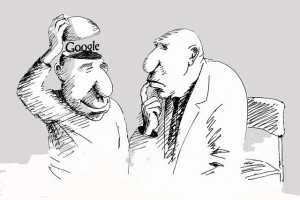Seven years ago, after an assessment that had gone on for a month, a doctor told me that my son had autism. I went home from that appointment and did what many people would do: I sat at my computer, went onto Google and typed in autism. I started reading and didn’t stop until my husband dragged me to bed with red eyes and an aching back in the early hours of the morning. A pattern started: I would wake up early, read about autism, go to work, come home, read about autism, do mom stuff, put the kids to bed, and read about autism until I was stopped or until I fell asleep at my desk.
After almost a month of this, my doctor – a different one – handed me a prescription for antidepressants, talked me down from a frightening ledge, and gave me a thirty-day ban from looking up anything autism-related on my computer. Looking back, I wish I had seen my doctor sooner. That ban that he imposed on me probably saved me from complete insanity.
When a child is diagnosed with something, the parents instinctively want to find out as much as they can about the condition. They operate under the belief that knowledge is power, and that constant research will yield solutions and methods and answers. In reality, all the constant research yields is more questions and confusion, along with a good dollop of guilt.
Here’s the problem with online research. When you do a Google search of autism, this is what you get:
If you are in that surreal, mind-altered state that comes immediately after your child’s diagnosis, you have no idea how to refine that search. You are so desperate for any information at all that you cannot tell the facts from the fiction, so you just assume that everything you read is true. As a result, you start believing all of those articles that say you caused your child’s autism by vaccinating, or by cooking the wrong foods, or by using bug spray while you were pregnant.
At the same time, you find conflicting information about what you’re supposed to do. How do you choose from a wide range of therapeutic approaches, all of which claim to be the be-all and end-all? Do you medicate or not? Do you start imposing special diets, or do you stick to what you know your child will eat? Do you impose a strict routine to make things easier for your child, or do you switch things up a little in an effort to replicate the “real” world? Do you believe the miracle-cure claims of people who promote hyperbaric oxygen therapy, massive doses of Vitamin D or – God help us – chelation therapy?
The thing is, all of that obsessive research is not necessary. When children are diagnosed with autism or some other condition, most doctors will give the parents a bundle of papers to read: print-outs of articles, information sheets, a diagnostic report containing information and recommendations. In the early days, while you are processing the shock of the diagnosis, that is enough. You have to give yourself time to settle your head before you start going nuts on the Internet. If you absolutely cannot resist the compulsion to do online research, don’t use Google. Ask your doctor for a list of recommended links, and restrict yourself to those.
After a bit of time has passed, you do get to a point where you can do a focused search for information. You get to know which of your child’s quirks are indicative of his or her autism, and you discover what sets off meltdowns and episodes of sensory overload. You are able to conduct your research based not on a distressed response to devastating news, but on a calm assessment of your child’s unique needs and challenges.
In the beginning, though, you don’t need that. What you need more than anything is to be kind to yourself.
This is an original post by Kirsten Doyle. Google search screenshot by the author. Header image attributed to Valeriy Osipov. This picture has a creative commons attribution license.












